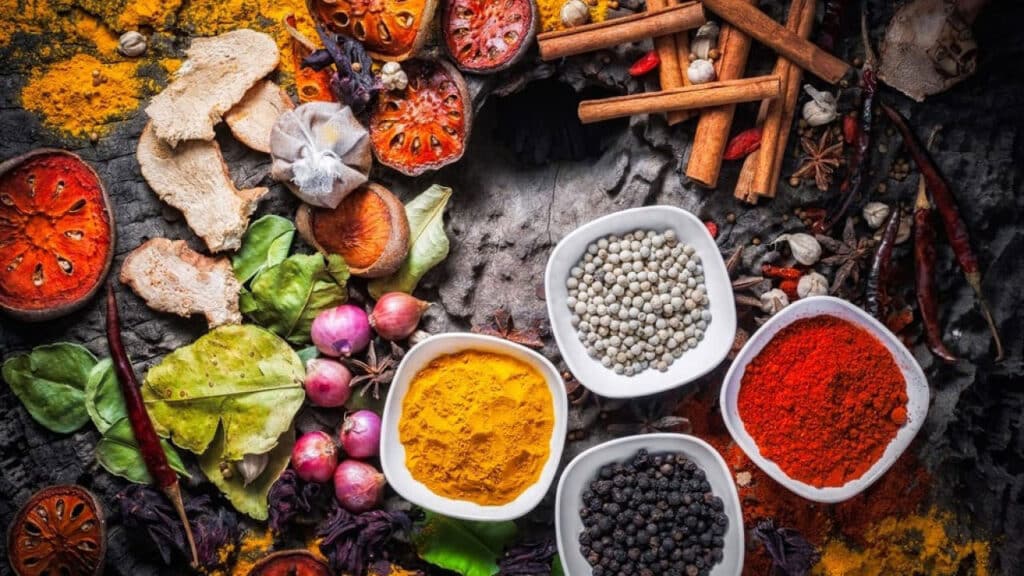Sometimes you just need to add a bit of extra spice to your food. It’s not about the health benefits – at least, they’re not usually the first things on your mind. You just want better flavors. If certain spices can actually improve your gut health, boosting some of those good bacteria down there, that’s an added bonus.
There’s been a lot of interest in recent years in the possible health benefits of common herbs and spices. Ginger, for example, along with its cousin turmeric, have earned attention for possible anti-inflammatory properties in addition to being able to ease your stomach. Garlic has anti-inflammatory and antibacterial properties, and it can possibly give your immune system a boost and even improve your blood pressure and heart health. Chili peppers have all sorts of potential benefits, from easing the pain of heartburn to perhaps helping with weight loss.
Some of these herbs and spices, along with others like cinnamon and cumin, were among those researchers decided to test to see how they specifically affected the gut microbiome, or the mix of bacteria, fungi and other microorganisms found in the stomach (https://academic.oup.com/jn/article/152/11/2461/6687807?login=false). They were following up on previous evidence that some herbs and spices could change your quantity and type of gut bacteria (https://www.mdpi.com/2072-6643/11/6/1425).
Like they suspected, the level of spice consumption seemed to lead to at least some gut bacteria increasing, particularly the type known as Ruminococcaceae. References to “good” and “bad” gut bacteria can be a little simplistic when we still have so much to learn about the complexities of the gut microbiome, but the presence of Ruminococcaceae has been associated with positive weight outcomes.
This is one small study, not a conclusive statement on the role of spices in the gut, but it offers promising leads for future research. Other studies have suggested that everyone has a different gut composition, leading to them experiencing spices in different ways (https://academic.oup.com/jcem/article/101/12/4681/2765040?login=false). For some people, spices like the capsaicin in chili may be more inflammatory than healthy.
We may not know for sure exactly how spices can boost gut bacteria – or even if that is always a good thing – but one thing is certain: a cauliflower roasted with turmeric and cumin has a lot more flavor than one that’s just boiled on its own. Spices are a way to appreciate vegetables a lot more.




